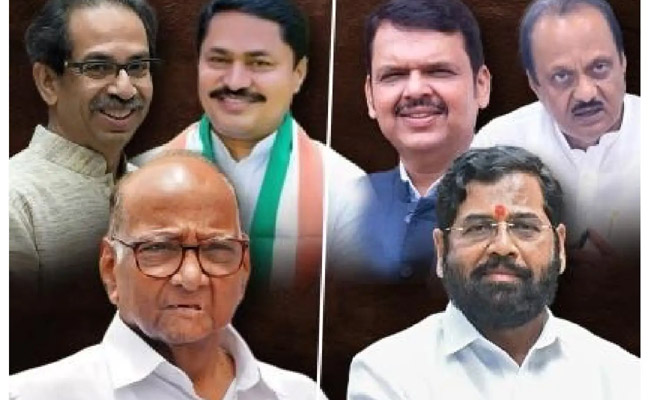
Political News

In Maharashtra’s upcoming elections, around 50 rebel candidates are contesting independently due to dissatisfaction over ticket allocation within the major coalitions. This rise in independents is creating a tense environment for the two main alliances: one coalition includes Shiv Sena’s Shinde faction, BJP, and Ajit Pawar’s NCP faction, while the opposing coalition comprises Congress, Shiv Sena’s Uddhav Thackeray faction, and Sharad Pawar’s NCP faction.
The formation of these coalitions has led to internal splits in many constituencies. Given the Shiv Sena and NCP split, it’s unsurprising that several candidates felt left out of key roles and decided to run as independents. Among these rebels, over 26 come from the ruling coalition of Shinde’s Shiv Sena, BJP, and Ajit Pawar’s NCP faction, each vying for victory despite not receiving official backing. Many of these individuals were denied tickets as a result of coalition compromises or their own parties prioritizing other candidates.
The Congress-led coalition has also seen discord, with six seats witnessing “friendly contests” and 18 additional rebels entering the race independently. In a state with 288 assembly constituencies, the presence of around 50 rebel candidates is significant, posing a unique challenge to major alliances. These independent contenders could shift the balance in tight races, potentially altering the overall election results in unexpected ways.
Maharashtra’s political landscape is already complex, with shifting loyalties and fractured allegiances, making it difficult for voters to keep track of the rapidly changing dynamics. With rebels impacting the coalitions’ stability, the influence of these independents could reach a peak, shaping the future of Maharashtra’s political framework. The question remains: which parties will bear the brunt of this rebellion at the ballot box?
Advertisment